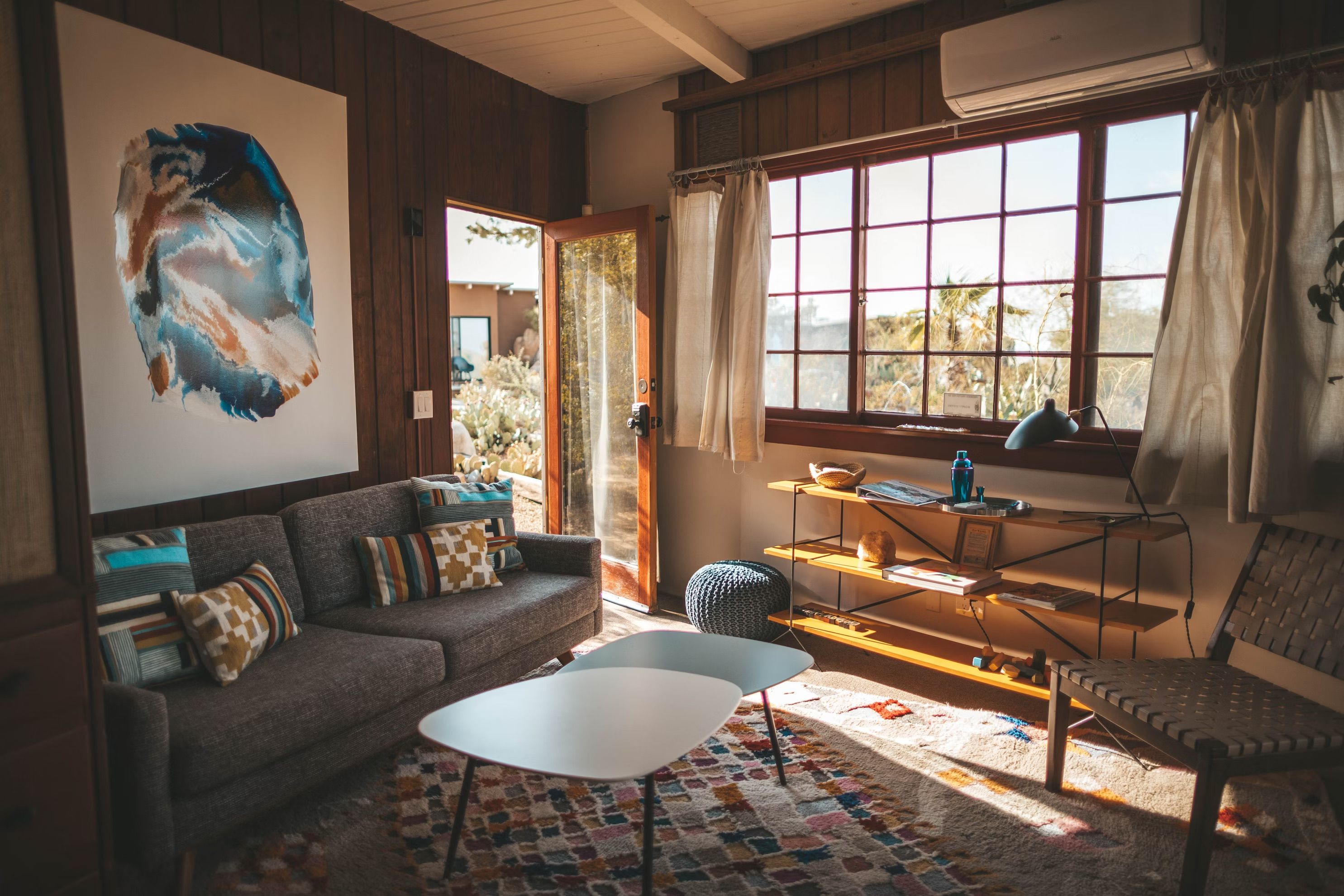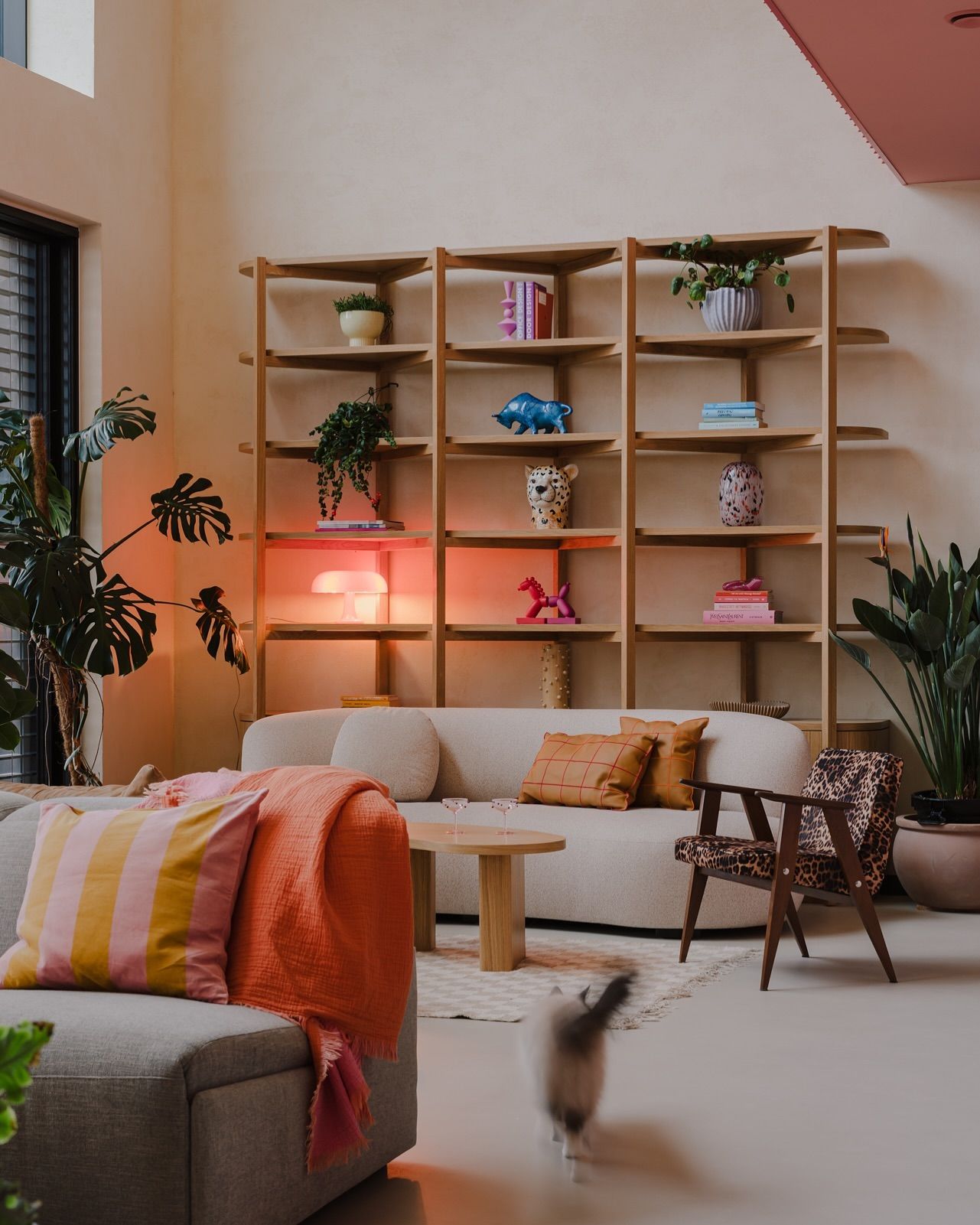Discover Bathroom Tiles & Flooring
Spoken matches bathroom tiles and flooring across 100s of stores to find you the best price.



Quick facts
Can't find the answer you're looking for? Please get in touch with our friendly team.
Which type of tile is not recommended for outdoor use?
Ceramic tiles are generally not recommended for outdoor use because they can absorb water, leading to cracking in freezing temperatures. Instead, porcelain tiles or natural stone are better options for outdoor areas due to their durability and resistance to weather conditions.
Is accent tile in shower outdated?
Accent tile in showers is not outdated; it remains a popular design choice. It adds visual interest and can highlight specific areas, like niches or borders. Trends may shift, but using accent tiles thoughtfully can enhance the overall aesthetic of your bathroom.
Where should accent tile be in the shower?
Accent tile should be used strategically in the shower to highlight specific areas. Common placements include the shower niche, as a border around the shower walls, or as a focal point on one wall. This adds visual interest and can enhance the overall design.
Is it OK to use different tile in different rooms?
Yes, using different tiles in various rooms is perfectly acceptable. It allows you to create distinct styles and atmospheres tailored to each space. Just ensure the tiles complement each other in color or texture for a cohesive overall look throughout your home.
What happens if you use wall tile adhesive on floors?
Using wall tile adhesive on floors can lead to poor adhesion and durability issues. Wall adhesives are not designed to handle foot traffic or heavy loads, which may result in tiles cracking or coming loose over time. It's best to use floor tile adhesive for flooring applications.
Do you grout between wall and floor tiles?
Yes, you should grout between wall and floor tiles. Grouting helps fill the gaps, preventing water from seeping behind the tiles and providing a finished look. Use a flexible grout to accommodate any movement between the wall and floor.
Are wall tiles cheaper than floor tiles?
Generally, wall tiles are cheaper than floor tiles. This is because wall tiles are thinner and lighter, requiring less durable materials than floor tiles, which must withstand more weight and foot traffic. Prices can vary based on design, material, and brand.
Can floor tiles be used as wall tiles?
Yes, floor tiles can be used as wall tiles. However, they are usually heavier and thicker, so ensure your wall can support the weight. Additionally, consider the tile's design and texture, as some floor tiles may not be suitable for vertical applications.
Is it OK to use same tile on floor and wall?
Yes, using the same tile on both the floor and wall can create a cohesive look. It works well in smaller spaces and can make the area feel larger. Just ensure the tile is suitable for both applications, as floor tiles are typically thicker and more durable.
What bathroom tiles won't go out of style?
Classic white subway tiles, natural stone tiles like marble, and neutral porcelain tiles are timeless choices. These options create a clean, elegant look that complements various decor styles and can easily adapt to changing trends.
What tiles should not be used in a shower?
Avoid using unglazed ceramic tiles, natural stone tiles like limestone or marble, and any porous tiles. These materials can absorb water, leading to mold and damage. Instead, opt for glazed tiles or porcelain, which are more water-resistant and easier to maintain.
Should bathroom wall tile be ceramic or porcelain?
Porcelain is generally a better choice for bathroom wall tiles due to its lower water absorption rate, making it more resistant to moisture and stains. Ceramic tiles are more affordable but may not hold up as well in humid environments. Consider your budget and style preferences.
Which is better glossy or matte floor tiles for bathroom?
Matte floor tiles are generally better for bathrooms as they provide better slip resistance, reducing the risk of falls. Glossy tiles can be slippery when wet, but they are easier to clean. Consider your priorities for safety versus aesthetics when making a choice.
What is the safest bathroom flooring for seniors?
The safest bathroom flooring for seniors includes slip-resistant vinyl, textured tiles, and rubber flooring. These materials provide good traction, are easy to maintain, and can help prevent slips and falls. Additionally, consider using area rugs with non-slip backing for added safety.
Should bathroom floor and wall tile be the same?
No, bathroom floor and wall tiles do not have to be the same. Using different tiles can create visual interest and define areas. Choose complementary colors or patterns that enhance the overall design while ensuring the floor tiles are slip-resistant for safety.
What is the average cost to tile a bathroom floor?
The average cost to tile a bathroom floor ranges from $1,000 to $3,000. This includes materials and labor. Factors like tile type, size, and bathroom layout can affect the total cost. Basic ceramic tiles are usually less expensive than natural stone options.
What floor tile is best for a bathroom?
Porcelain tiles are often considered the best for bathrooms due to their durability, water resistance, and low maintenance. They come in various styles and can mimic natural stone. Additionally, textured tiles can provide better slip resistance, enhancing safety in wet areas.
What can you cover your bathroom walls with?
You can cover bathroom walls with tiles, paint, wallpaper, or moisture-resistant panels. Tiles are popular for their durability and water resistance, while paint and wallpaper can add color and style. Always choose materials designed for high humidity to prevent damage.
What is the best low maintenance tile for a bathroom?
Porcelain tiles are the best low maintenance option for a bathroom. They are durable, water-resistant, and easy to clean. Unlike natural stone, porcelain does not require sealing and is less prone to staining, making it ideal for high-moisture areas.
What type of tile is best for bathrooms?
Porcelain and ceramic tiles are best for bathrooms due to their water resistance and durability. They come in various styles and textures, making them versatile for design. Additionally, consider slip-resistant options for safety on wet surfaces.
Category Overview
Introduction
Bathroom tiles and flooring are essential components in any home, serving both functional and aesthetic purposes. They provide a durable surface that withstands moisture while enhancing the overall decor of your bathroom. This not only elevates the daily experience of a long, relaxing soak or a quick morning routine but also boosts the value of your home. Whether you prefer sleek porcelain tiles or warm wooden finishes, the right choice can create an inviting atmosphere that transforms a simple bathroom into a serene retreat.
Functionality
The primary function of bathroom tiles and flooring is to offer a waterproof and slip-resistant surface that caters to the unique demands of wet environments. They are versatile enough to be used not just in bathrooms but also in laundry rooms, mudrooms, and even entryways where moisture may accumulate. Some tiles come with additional features like anti-slip textures, making them perfect for households with children or elderly family members. Choosing the right flooring ensures both safety and functionality while complementing your lifestyle needs.
Design & Style
When it comes to design, bathroom tiles and flooring offer an array of materials including ceramic, porcelain, vinyl, natural stone, and even glass mosaics. You can opt for styles ranging from luxurious marble to rustic terracotta depending on your personal taste—like modern minimalism versus cozy farmhouse aesthetics. Personalization is easy; many homeowners mix and match colors or patterns to create unique looks that echo their home’s decor themes—be it classic elegance or contemporary chic. Long-tail keywords such as "best durable tile for bathrooms" or "eco-friendly tile options" resonate well when considering your choice.
Practical Considerations
Selecting the right bathroom tiles and flooring requires careful thought about several factors: - Room Size: Larger tiles can make small spaces appear more open. Material Durability: Waterproof options like porcelain are ideal for high-moisture areas. Usage Needs: If you have kids or pets, go for resistant materials that endure heavy traffic.Avoid common pitfalls such as choosing overly slick surfaces that become hazardous when wet or neglecting grout maintenance which can lead to mold growth over time.
Comparison and Alternatives
When comparing materials like tile versus luxury vinyl planks (LVP), consider their pros and cons: Tile is hard-wearing and offers endless design choices but can be cold underfoot. LVP, on the other hand, mimics wood appearance while providing warmth but may lack longevity compared to tile.Decide based on factors like room size—large format tiles can often make a spacious look feel even more expansive while smaller patterned tiles might add visual interest in compact spaces.
Trends and Popular Items
Current trends indicate a shift towards sustainability with increasing popularity in eco-friendly materials such as recycled glass tiles or sustainably sourced wood floors treated for wet environments. Bold geometric patterns are also making waves alongside calming monochromatic palettes where soft hues dominate the scene—perfect for creating zen-like spaces in your home. In summary, selecting ideal bathroom tiles and flooring involves understanding their functional benefits alongside personal style preferences—they should not only serve practical purposes but also enrich your living environment through thoughtful design choices tailored to fit various lifestyles.